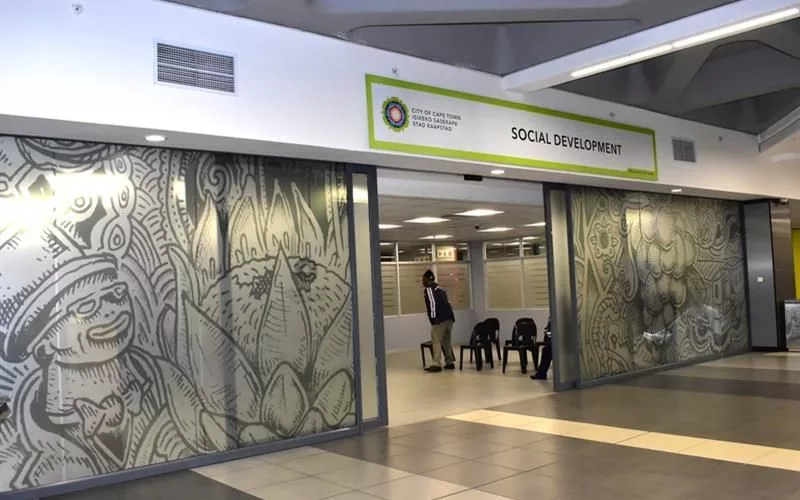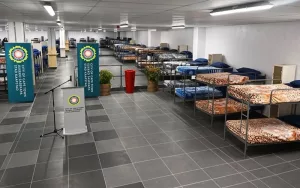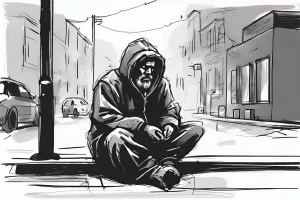The City has created a caring and complete plan to help people who sleep on the streets. Safe Spaces offer warm shelter, food, and friendly social workers who listen and help with personal goals. Programs teach skills and offer jobs, while addiction help and family support give new chances. This is more than just shelter it’s about restoring hope, dignity, and a fresh start for each person. The City believes everyone deserves kindness and a chance to rebuild their lives.
Cape Town is gearing up to help the homeless as winter approaches. The city plans to add 200 new bed spaces in shelters and provide vital resources like food, toiletries, and training for shelter staff. This initiative encourages community support, urging locals to donate goods or volunteer their time. By working together, Cape Town aims to create a warm and safe environment for those in need during the cold winter months.
In Cape Town, Uturn Homeless Ministries and The Hope Exchange have joined forces to fight homelessness. This exciting partnership, called ‘The Hope Exchange operated by Uturn,’ combines their strengths to support those in need more effectively. By merging Uturn’s innovative recovery programs with The Hope Exchange’s longstanding services, they aim to provide better living conditions and pathways for the homeless. Together, they are shining a bright light of hope, helping people rebuild their lives and reconnect with their communities.
Cape Town is launching an initiative to transition individuals living in illegal settlements into Safe Spaces, with over 150 people voluntarily relocating in the initial week of August. The remaining illegal dwellers will be evacuated after August 12th, and their personal possessions will be cataloged and held at a city facility. The Safe Spaces offer medical attention, substance misuse therapy, EPWP work, family reunification services, and personal advancement programs to help individuals permanently move away from the streets. The city of Cape Town is committed to allocating R220 million over three years to expand and manage its Safe Space transitional shelters.
Cape Town has opened a new Safe Space facility in Green Point, providing shelter, transitional housing, personal development planning, job opportunities, and referrals for mental health, medical, and addiction treatment services to the homeless community. With a total capacity of 1070 beds across all centers, the Safe Spaces funded by the city’s coffers offer a unique approach to homelessness, going beyond providing shelter and warmth to provide sustainable solutions and social programs. Cape Town’s commitment to helping the homeless sets a global example, demonstrating that with investment and dedication, it is feasible to establish a caring, supportive environment for those most vulnerable.
The homelessness crisis in Cape Town’s CBD is becoming increasingly urgent, with hundreds of homeless individuals facing eviction. The city’s proposed solution, the Safe Spaces Initiative, provides shelter, meals, and vocational training to homeless individuals and is funded by the city. While some support the initiative as a way to preserve the dignity of the destitute, others argue for more comprehensive solutions, such as repurposing vacant buildings for permanent housing and addressing health and employment issues. The decision of how to tackle this issue has farreaching implications, making it a critical moment for the city.
A proposed Safe Space shelter for the homeless in Muizenberg has sparked debate. The City of Cape Town has identified a parking lot in Sidmouth Road as the site for the proposed 60bed shelter, which will be managed by the Uturn welfare organization. However, the location has raised concerns about the impact on tourism and economic activities in the area. Nonetheless, the city has emphasized the need to provide shelter for people who have made public spaces their homes.
The city of Cape Town is providing R157,000 in aid to twelve city shelters, collaborating with the provincial Department of Social Development to enhance operational capacity, and evaluating a funding proposal to assist shelters in maintaining compliance standards. These actions aim to support the homeless during the harsh winter conditions and foster longterm sustainability for nonprofit organizations committed to helping them. The city emphasizes the important role of community involvement in improving the living conditions of street dwellers.
A homeless man, Stanton Daniels, was fatally shot by a security guard at the Mowbray bus terminal in South Africa. Daniels had been living on the streets for 15 years and had set up his makeshift home next to a bus kiosk. The incident has sparked a larger conversation about the intersection of homelessness, public security, and societal ignorance. The investigation is ongoing, but the shooting highlights the marginalization of the homeless and the need for their stories to be heard.
The sudden surge of homelessness in Paarl, Cape Town, due to an influx of 30 individuals from Cape Town has led to the rise of makeshift structures along the Berg River. Efforts are being made by the Drakenstein Municipality, in collaboration with multiple stakeholders, to relocate the homeless individuals and sanitize the affected areas. The municipality is adopting a more compassionate and sustainable approach to address homelessness in a comprehensive manner, including the establishment of an overnight shelter. The goal is to create a safe and supportive environment that offers access to essential services for the homeless individuals.
The Castle of Good Hope in Cape Town is facing challenges from unlawful encampments and public safety issues, threatening the historical landmark’s reputation and the peace of the surrounding areas. To address these concerns, the Department of Public Works has initiated an eviction process and proposed transitional shelter solutions, emphasizing dignity, reintegration, and personal development opportunities. The city’s proactive approach against homelessness includes expanding and operating Safe Space transitional shelters and providing comprehensive services to aid individuals in transitioning from the streets. This allembracing strategy offers hope for heritage monuments and cities grappling with similar challenges.
As winter approaches Cape Town, homeless shelters are preparing for an expected increase in demand for warmth and shelter from the bitter cold. Haven, a leading charity, is creating approximately 100 additional sleeping spaces to meet the surge in demand. Homelessness is a persistent issue in Cape Town with estimates suggesting a homeless population of up to 20,000 in the area alone, but the combined efforts of charities, institutions, and the government offer hope for the vulnerable during the toughest season.
South Africa’s unpredictable climate silently adds to the struggle of the homeless population, making their already challenging lives even more uncertain. During winters, severe chill increases the danger of frostbite and other coldrelated health issues. However, the magnitude of this humanitarian crisis remains unknown, and statesanctioned shelters offer temporary relief. Regular citizens can also contribute by donating money, food, clothes, and blankets to these shelters; it’s a shared responsibility to help those without homes weather the storm.
Cape Town is pioneering strategies to tackle homelessness through the groundbreaking Street People Policy launched in 2013. This policy has enabled easier access to social services, promoted reintegration, and guaranteed access to critical identification documents and social grants. The city’s strategy is always evolving, and the new draft strategy aims to further mitigate the factors that increase vulnerability to homelessness. The public participation process allows citizens to contribute their insights and assist in shaping the city’s strategy for addressing homelessness.
The Indispensable Function of Family Shelters: A Look into Somerset West Family Shelter
The Somerset West Family Shelter is an indispensable function during harsh winters as it provides a secure and supportive environment for homeless families. It is unique in that it allows families to stay together in individual rooms, which has drawn in applications from as far as Johannesburg. The shelter offers skills enhancement programs, enabling residents to carve out new careers and regain control over their lives. However, longterm solutions to homelessness require the support of rehabilitation programs, and the City of Cape Town is taking proactive steps to address the issue.
Cape Town’s new Safe Space shelter in the Durbanville region is a symbol of hope for the homeless community. The shelter offers job opportunities, personal development planning, and referrals for healthcare treatments, promoting individual growth and independence. The model comprises a dignified shelter, two daily meals, and an onsite social worker’s availability. The Durbanville Safe Space complements the existing infrastructure, extending support outside the Safe Space, and signifies a substantial leap towards a more inclusive city.
















